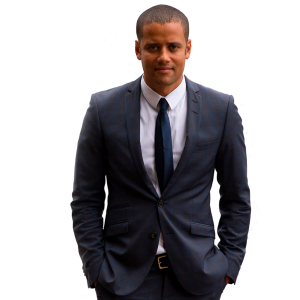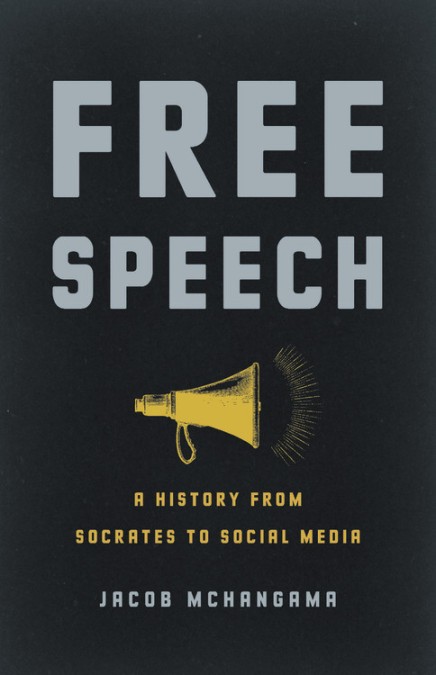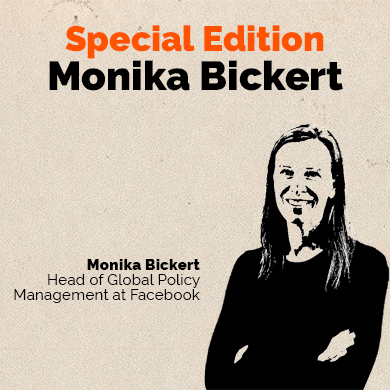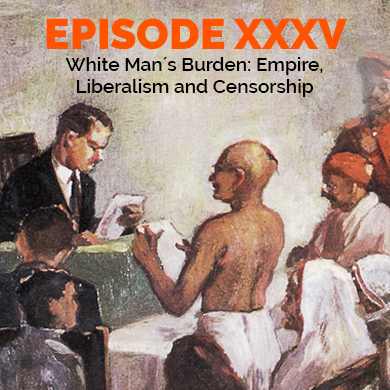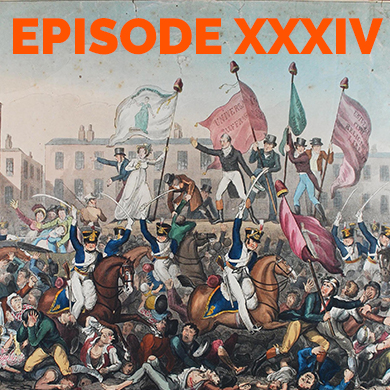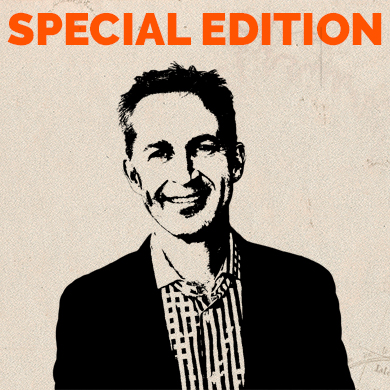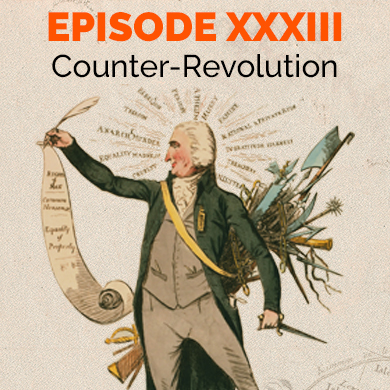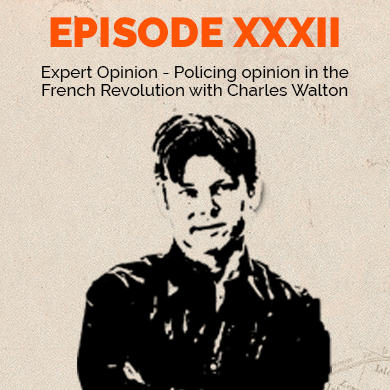Free Speech: A History from Socrates to Social Media
A global history of free speech, from the ancient world to today
Hailed as the “first freedom,” free speech is the bedrock of democracy. But it is a challenging principle, subject to erosion in times of upheaval. Today, in democracies and authoritarian states around the world, it is on the retreat.
In Free Speech, Jacob Mchangama traces the riveting legal, political, and cultural history of this idea. Through captivating stories of free speech’s many defenders—from the ancient Athenian orator Demosthenes and the ninth-century freethinker al-Rāzī, to the anti-lynching crusader Ida B. Wells and modern-day digital activists—Mchangama reveals how the free exchange of ideas underlies all intellectual achievement and has enabled the advancement of both freedom and equality worldwide. Yet the desire to restrict speech, too, is a constant, and he explores how even its champions can be led down this path when the rise of new and contrarian voices challenge power and privilege of all stripes.
Meticulously researched and deeply humane, Free Speech demonstrates how much we have gained from this principle—and how much we stand to lose without it.
a podcast on the history of free speech
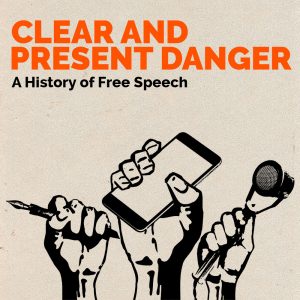
CLEAR AND PRESENT DANGER
Why have kings, emperors, and governments killed and imprisoned people to shut them up? And why have countless people risked death and imprisonment to express their beliefs? Jacob Mchangama guides you through the history of free speech from the trial of Socrates to the Great Firewall.
WHAT OUR LISTENERS THINK
“We mustn’t allow free speech to fade into a feel-good slogan. It is an unintuitive principle with a rationale that many don’t appreciate and a history that many don’t know. Mchangama’s lucid history of free speech fills that gap and deepens our understanding of this precious concept”.
“Freedom of speech is the most successful social policy ever – and also the most counterintuitive. Jacob Mchangama’s delightful podcast series paints vivid portraits of the lives, ideas, and struggles of the people who brought this improbable principle to life. I haven’t missed an episode, and neither should you.”
“Free speech in the ancient Athenian democracy, as Jacob Mchangama so brilliantly and wittily makes clear …was one of the cardinal and fundamental principles of ancient Greek demokratia…..So important are the issues still today that ‘Free speech in Ancient Athens’ is worth an hour of any concerned citizen’s time”
“Throughout much of history, free speech advocates have been progressives fighting elite power structures. Karl Marx rightly opposed and indeed lampooned press censorship. It is a tragedy of the 20th and 21st centuries that too many progressives have switched sides, weaving poorly reflected theories of language into poorly reflected theories of politics. Jacob Mchangama leads us through a vividly told history that, sadly, continues to repeat for as long as its lessons remain un-learned”.
”After impressive gains, free speech is once again in retreat across the globe. This development should concern all who care about democracy, freedom, and truth. Free speech superstar Jacob Mchangama’s new highly informative and engaging history of free speech is just the answer. The podcast is the perfect medium to rediscover the rich heritage and crucial civilizational gains of free speech and to inoculate against dangerous complacency.“
“The podcast provides an engaging and inspiring history of free speech that is accessible to anyone interested in a topic that is fundamental to every human being and society. If you want to understand what’s at stake and know about the battles that our predecessors were engaged in the fight for free speech there can be no better place to start than with Jacob Mchangama’s podcast.”
Episode 41 - Free Speech and Racial Justice: Friends or Foes?
In May 2020, protests erupted all over the U.S. after a video emerged of a white police officer killing a black man named George Floyd. Millions took to the streets in support of racial justice under the rallying cry “Black Lives Matter.” Most protests were peaceful, but several cities experienced large-scale violence. Free speech was also affected in the process. A disturbing number of incidents of police brutality and excessive force against peaceful protesters and journalists were documented. President Trump accused a Black Lives Matter leader of “treason, sedition, insurrection” and labelled protestors as “terrorists.”
But demands for structural change also led to calls for de-platforming people whose views were deemed hostile to or even insufficiently supportive of racial justice. A Democratic data analyst named David Shor was fired after tweeting a study that showed that nonviolent black-led protests were more effective than violent ones in terms of securing voter support. In another instance, New York Times staffers protested that the newspaper put “Black @NYTimes staff in danger” by running a provocative op-ed by Republican Senator Tom Cotton, which argued for deploying the military to quell riots. The newsroom revolt led to opinion editor James Bennet resigning.
Academia was affected too. A letter signed by hundreds of Princeton faculty members, employees and students demanded a faculty committee be established to “oversee the investigation and discipline of racist behaviors, incidents, research, and publication” and write “Guidelines on what counts as racist.”
Social media companies came under intense pressure to take a more robust stand on “hate speech.”
The entrenchment of so-called “cancel culture” caused around 150, mostly liberal, writers and intellectuals to sign an open “Letter on Justice and Open Debate.” The letter argued against what the signers saw as “intolerance of opposing views, a vogue for public shaming and ostracism, and the tendency to dissolve complex policy issues in a blinding moral certainty.” The letter drew sharp criticism from many journalists, writers and intellectuals for being “tone-deaf,” “privileged,” “elitist” and detracting from or even hurting the struggle for racial justice.
The wider debate often turned nasty — especially on social media — with loud voices on each side engaging in alarmist, bad faith arguments ascribing the worst intentions to their opponents. Many of those concerned about free speech warned of creeping totalitarianism imposed by “social justice warriors” run amok, intent on imposing a stifling orthodoxy of “wokeism.” Some confused vehement criticism of a person’s ideas with attempts to stifle that person’s speech. On the other hand, some racial justice activists outright denied the existence of “cancel culture” and failed to distinguish between vehement criticism of a person’s ideas and calling for that person to be sanctioned by an employer, publisher or university. Some even accused free speech defenders of being complicit in or actual defenders of white supremacy and compared words deemed racially insensitive with violence.
Underlying these debates is a more fundamental question. Is a robust and principled approach to free speech a foundation for — or a threat to — racial justice?
To help shed light on this question, this episode will focus on what role the dynamic between censorship and free speech has played in maintaining and challenging racist and oppressive societies. The episode will use American slavery and segregation, British colonialism, and South African apartheid as case studies.
In this episode we will explore:
- How Southern legislators and congressmen adopted some of the most draconian restrictions of free speech in American history, while Southern mobs enforced a “slaver’s veto” to curb abolitionist speech and ideas;
- How Southern demands that the Federal government and Northern states actively police abolitionist ideas kicked off a debate over first principles and the role of free speech in America;
- How Southern “cancel culture” purged a professor critical of slavery from the University of North Carolina;
- How women played a critical role in mobilizing opinion against slavery and defying the slaver’s veto;
- Why Frederick Douglass believed that “The right of speech is a very precious one, especially to the oppressed;”
- How the First Amendment did little to end the discrimination and oppression of African-Americans immediately after the abolishment of slavery;
- How the civil rights movement and its civil libertarian allies advanced group rights of discriminated minorities through the dramatic expansion of constitutionally protected individual rights, not least First Amendment freedoms;
- Why recently deceased congressman John Lewis believed that “Without freedom of speech and the right to dissent, the Civil Rights movement would have been a bird without wings;”
- How the British used laws against sedition and hate speech to target anti-colonial movements and silence dissidents like Mahatma Gandhi;
- How Mahatma Gandhi viewed the freedoms of speech and association as “the two lungs that are absolutely necessary for a man to breathe the oxygen of liberty;”
- How censorship and suppression was a key component of South African apartheid, which punished expressions “hateful against the white man” and kept an index of prohibited books to silence anti-apartheid activists;
- How Nelson Mandela only abandoned peaceful resistance when the regime had shut down all lawful modes of expressing opposition to white supremacy;
- Why Mandela believed that free speech should constitute a core value of South African democracy and that “No single person, no body of opinion, no political or religious doctrine, no political party or government can claim to have a monopoly on truth.”
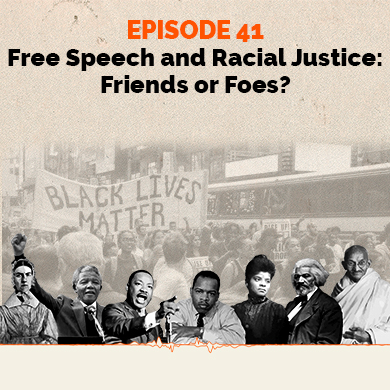
Special Edition - Suzanne Nossel
In this Special Edition, we will zoom in on current challenges to free speech – specifically in the US. With me to discuss this timely subject, I have CEO of PEN America, Suzanne Nossel, who has just published her new book Dare to Speak: Defending Free Speech for All.
The conversation evolves the main conclusions of Suzanne’s book including matters such as:
- How Suzanne´s fight against an international blasphemy law at the UN inspired her to write the book
- How Suzanne’s 20 principles for free speech aims to provide a toolset needed to speak one’s mind in today’s diverse, digitized, and highly-divided society without resorting to curbs on free expression
- How we deal with hate speech without sacrificing free speech
- What we can do to avoid harm when speaking
- How so-called cancel culture has migrated from campus to elite media, corporate and cultural institutions
- How to balance social media platforms right to control public discourse and the snowballing societal consensus that media platforms need to do more to mitigate the harms of content posted on their services.
Suzanne Nossel is the CEO of PEN America. She has also served as the Chief Operating Officer of Human Rights Watch and as Executive Director of Amnesty International USA, and held senior State Department positions in the Clinton and Obama administrations.
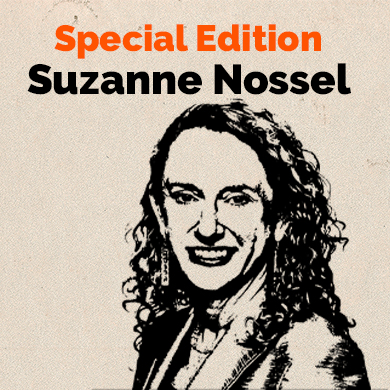
Special Edition - Daphne Keller & Kate Klonick
“Internet Speech Will Never Go Back to Normal”, wrote Jack Goldsmith and Andrew Keane Woods in a recent Atlantic article, where they stated that the U.S. must learn from China in regulating the internet, and that “significant monitoring and speech control are inevitable components of a mature and flourishing internet, and governments must play a large role in these practices to ensure that the internet is compatible with a society’s norms and values.”
But is this conclusion the only one available from the fallout of the coronavirus crisis? Or are there other ways to ensure a mature and flourishing internet, where free speech and public health go hand in hand? Here to discuss the issue is two of the biggest experts on the subject on internet law and platform regulation: Daphne Keller and Kate Klonick.
In this episode we discuss:
- whether social media platforms like Facebook, Twitter and YouTube been paragons of responsibility or the lapdogs of censorious governments when it comes to content moderation?
- if the current crisis justifies lowering the threshold for when content is deemed “harmful” or should we be even more vigilant about keeping stuff up and accessible?
- are there specific problems in the policy of following the guidelines of health authorities like WHO and CDC which have changed on issues like facemasks and included inaccurate information about the nature of COVID-19?
- what is the impact and promise of automated content moderation based on the performance during the pandemic
- whether democracies – particularly European ones – have weakened the immune system of online freedom because they have chosen to respond to legitimate concerns about hate speech, disinformation and terrorist content with illiberal laws?
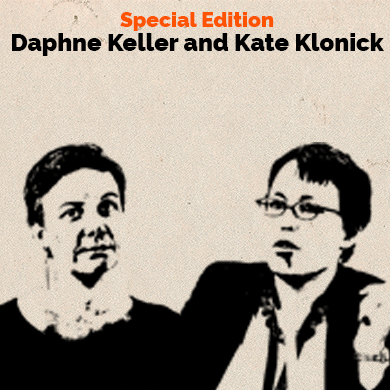
Special Edition – Dunja Mijatović
Since the coronavirus became a pandemic, governments around the world have adopted a wide range of measures affecting basic human rights. This includes many of the 47 member states of the Council of Europe all of whom are legally bound by the European Convention on Human Rights. Most states have limited the freedoms of assembly and movement, some have also limited privacy and data protection and then there are some who have restricted freedom of expression through laws or policies banning false information.
To discuss the implications for freedom of expression is none other than the Council of Europe Commissioner for Human Rights, Dunja Mijatović, who previously served as the OSCE Representative on Freedom of the Media.
In a statement on April 3rd, Dunja Mijatović wrote: “The global health problems caused by COVID-19 require effective measures to protect people’s health and lives. This includes combating disinformation that may cause panic and social unrest. Regrettably some governments are using this imperative as a pretext to introduce disproportionate restrictions to press freedom; this is a counterproductive approach that must stop. Particularly in times of crisis, we need to protect our precious liberties and rights."
In this conversation we discuss:
- The measures countries like Hungary, Romania, Russia and Azerbaijan, that typically target false information, have taken during the crisis.
- How bad the situation has become for free expression in Europe because of corona-related restrictions.
- Which types of restrictions that are particularly worrying and which countries that are of specific concern.
- If combating misinformation is vital during this crisis, why is it a problem if states adopt exceptional measures? Article 10 paragraph 2 of the European Convention on Human Rights allows governments to interfere with free expression for the purpose of “public safety” and the “protection of health.”
- According to case law of the European Court of Human Rights, the member states have a certain margin of appreciation when it comes to finding the right balance between convention rights (free speech) and competing interests (such as health and public safety). On the one hand the threat from Covid-19 give states a wide margin on appreciation, but on the other hand one could argue that access to information and scrutiny and debate of emergency measures is just as important.
- What types of measures that would be consistent with freedom of expression. Would it be legitimate to ban or remove statements that contradicted health advice by WHO or the national health authorities?
- Should journalists and media have more freedom than ordinary citizens expressing themselves on social media, blogs and so on.
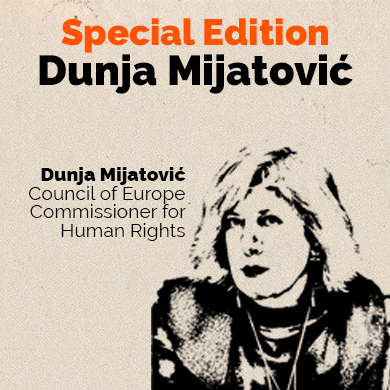
Special Edition - Monika Bickert
The coronavirus has disrupted life as we know it. Billions of people across the world are caught in varying degrees of lockdowns with severe restrictions on their freedom of movement. But while our physical world has shrunk, cyberspace remains wide open. And there is no shortage of information as the internet overflows with torrents of data, news, and updates about the ongoing crisis. But in parallel with the COVID-19 pandemic, the World Health Organization has warned of an “infodemic” of mis- and disinformation spreading through social media and messaging apps.
Policymakers at social media platforms are acting like gatekeepers, deciding what content is sufficiently healthy for their users around the world to consume. These decisions have real consequences for the practical exercise of freedom of speech and access to information for billions of people. With me to discuss how Facebook is navigating this unprecedented situation is Monika Bickert, who is the Head of Global Policy Management at Facebook with responsibility for content moderation.
In this conversation we discuss:
- What policies Facebook has put in place to counter disinformation on its platforms;
- How much content has been downgraded and removed due to disinformation; compared to the period before COVID-19;
- How Facebook interprets the risk of “imminent physical harm” amidst a pandemic;
- How the shutdown has led to a sharp decrease of available content moderators and a reliance on automated content moderation to flag misinformation;
- Why Facebook has removed Brazilian President Jair Bolsonaro’s comments about the supposed effects of the drug hydroxychloroquine, but not President Trump’s comments about the same drug;
- The pros and cons of relying on the guidelines of health authorities like the Centers for Disease Control and Prevention and WHO to determine what constitutes misinformation even though these authorities have revised statements on issues such as the use of face masks (CDC) and the potential for human-to-human transmission (WHO);
- How Facebook uses a network fact-checkers to rate the truthfulness of stories, but who is fact-checking the fact-checkers?
Episode 40 – The Age of Human Rights: Tragedy and Triumph
In 2014, Saudi Arabian blogger Raif Badawi was sentenced to 10 years in prison and 1,000 lashes for insulting Islam by promoting secular values on his blog Free Saudi Liberals.
Raif Badawi’s fate would have been familiar to Soviet refusenik and human rights activist Natan Sharansky, and many other dissidents in the Soviet Bloc, who also faced long prison sentences and inhuman treatment during the Cold War. Both theocratic and communist states proclaim to be in possession of the “truth.” Consequently, they punish those who engage in religious or ideological heresy, leaving little room for the idea of human rights.
So, it is no surprise that in 1948, Saudi Arabia and six European Communist states were among the eight countries that did not vote in favor of the United Nations Universal Declaration of Human Rights.
Both communist and Islamic states developed cautious strategies to engage with the growing human rights system in order to seek legitimacy without undermining their grip on power. One key strategy was to pull the teeth from the protection of free expression by including simultaneous obligations to prohibit the broadly defined concept of “incitement to hatred.” But ultimately the very human rights language which the communist states had sought to contain ended up eroding the communist stranglehold on power.
But the repressive legacy of Communism had a long half-life, even after the ideology itself was dumped on the ash heap of history at the end of the Cold War. The countries in the Organization of Islamic Cooperation — the OIC — sought to exploit the very loopholes that the communist states had introduced for their own purposes. Instead of protecting an atheistic and materialistic ideology, they advanced an interpretation of human rights where restrictions on free speech protected theistic and metaphysical Islamic doctrines from criticism and satire. And while a concerted global effort by democracies successfully beat back the OIC offensive at the UN, this conflict is still ongoing. In fact, the democracies and human rights system of Western Europe have internalized and expanded limitations on free speech, which they once deemed dangerous. This raises the question of just how robust the future of free speech — and the culture on which it depends — really is.
In this episode we will explore:
- How the Communist East and the Capitalist West clashed over the limits of free speech when drafting the Universal Declaration of Human Rights and the International Covenant on Civil and Political Rights at the UN;
- How Eleanor Roosevelt became a dogged and eloquent defender of principled free speech protections and warned against Soviet attempts to abuse hate speech restrictions to punish all dissent;
- How the American position at the UN clashed with domestic laws targeting communists under the Second Red Scare and McCarthyism;
- How the Soviet Bloc used laws against “incitement” to punish hundreds of dissidents and human rights activists behind the Iron Curtain;
- How the Helsinki Final Act provided dissidents with a tool to hold their governments morally accountable for human rights violations;
- How Western states and human rights NGOs gave dissidents like Vaclav Havel and Andrei Sakharov a voice and increased the pressure on the Soviet Bloc;
- How the Helsinki Final Act contributed to the fall of Communism;
- How, after the end of the Cold War, the OIC launched a campaign to prohibit “defamation of religions” at the UN;
- How the OIC campaign managed to secure majorities at the UN and conflate blasphemy and hate speech;
- How the OIC campaign was defeated by the Obama administration and the application of the Supreme Court decision in Brandenburg v. Ohio; and
- How case law from the European Court of Human Rights undermines efforts to prevent future abuse of human rights to limit freedom of expression.
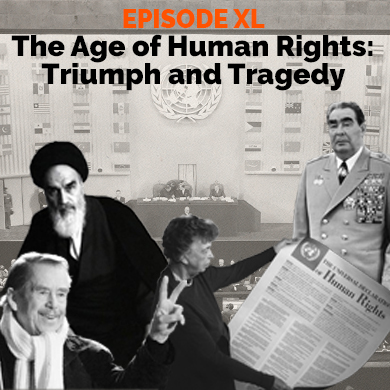
Episode 39 – The Totalitarian Temptation - Part II - Der Untergang
In November 2019 German Chancellor Angela Merkel gave a passionate speech to the German Bundestag. Merkel said “We have freedom of expression in this country…. But freedom of expression has its limits. Those limits begin where hatred is spread … where the dignity of other people is violated.”
Merkel grew up under a stifling communist dictatorship and serves as chancellor of a country where vicious propaganda once helped paved the way for genocide. So few have stronger credentials when it comes to balancing the pros and cons of free speech. And Merkel’s words of warning are impossible to separate from Germany’s Nazi past following the democratic collapse of the Weimar Republic. There can be no doubt that Merkel and the German commitment to “militant democracy” is motivated by a sincere belief, to paraphrase the political philosopher Karl Popper’s famous “paradox of tolerance,” that democracies must be intolerant towards the intolerant.
But there are also those who argue that criminalizing speech is a cure worse than the disease in democracies. To use a deliberately provocative term, laws against free speech might serve as “enabling acts” for authoritarian regimes to crush dissent once in power.
George Orwell reached the opposite conclusion of Merkel. In the unpublished foreword to his famous novel “Animal Farm,” Orwell warned against the “widespread tendency to argue that one can only defend democracy by totalitarian methods.” Orwell cautioned “that if you encourage totalitarian methods, the time may come when they will be used against you instead of for you.”
In this episode we will explore how Weimar Germany was deeply conflicted about the value of free speech. On the one hand, freedom of expression and the press were constitutionally protected. On the other hand, the constitution allowed censorship of cinema and “trash and filth” in literature. Weimar Germany enjoyed a vibrant public sphere with thousands of newspapers, daring art, great intellectuals and groundbreaking science, and yet, authorities used draconian laws and emergency decrees to curb newspapers and individuals seen as fanning the flames of political violence by anti-democratic groups on the right and left. This included one Adolf Hitler and his National Socialist Party.
When the Nazis finally assumed power, they not only used terror and violence, but also turned the laws and principles supposed to protect the democratic order in to weapons against democracy, paving the way for totalitarianism, war, and genocide.
In this episode we will explore:
- How Weimar Germany abolished censorship and created a vibrant public sphere;
- How democracy was challenged by violent extremists on the political right and left;
- How Adolf Hitler viewed press freedom and free expression as corrosive principles which allowed “Poison to enter the national bloodstream and infect public life;”
- How Hitler used his devastating talent for public speaking to whip the crowds in Bavarian beer halls in to a frenzy of hatred and become leader of the NSDAP;
- How Weimar authorities failed to enforce bans against violent paramilitary groups on the right;
- How Hitler and anti-Semitic Nazi newspapers like Der Stürmer and Der Angriff used bans against public speaking and punishments for speech crimes to gain propaganda victories and attract attention;
- How laws and emergency decrees to defend the republic led to increasingly draconian measures against the press, including 284 temporary bans of newspapers in Prussia alone, in 1932;
- How Hitler used the constitution and existing laws to suspend the freedoms of speech, assembly, and association and terrorize political opponents through violence and mass detentions without trial in concentration camps;
- How Hitler turned Germany into a one-party state in less than six months;
- How news laws turned any form of dissent, including jokes and rumours, into serious speech crimes;
- How Joseph Goebbels and his Ministry of Propaganda and Enlightenment ensured the complete submission of the press, literature and art to the dictates of Nazi ideology;
- How some Germans continued to dissent including the theologian Dietrich Bonhoeffer; and
- How the combination of ideological censorship and propaganda paved the way for the shocking brutality of the German war machine and ultimately for genocide.
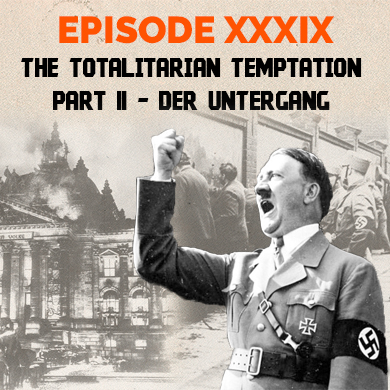
Episode 38 – The Totalitarian Temptation - Part I
In George Orwell’s 1946 work, “The Prevention of Literature,” he wrote:
[O]rganised lying … is … integral to totalitarianism, [and] would … continue even if concentration camps and secret police forces had ceased to be necessary. … A totalitarian state is in effect a theocracy, and its ruling caste, in order to keep its position, has to be thought of as infallible. … Totalitarianism demands, in fact, the continuous alteration of the past, and in the long run probably demands a disbelief in the very existence of objective truth.
As we shall see, the Orwellian diagnosis of totalitarianism was surgical in its precision. But despite the defeat of European communism, fascism, and Nazism, the dark and bloody past of totalitarianism still casts long shadows on European liberal democracies. On the one hand, freedom of expression is a foundational value ensuring the pluralism and autonomy that is anathema to totalitarianism. On the other hand many countries restrict free speech to safeguard against totalitarian propaganda aimed at undermining democracy. This raises the question: Should we be most afraid of totalitarian movements abusing free speech to abolish other freedoms and democracy, or of democracies abusing limits on free speech to silent dissent? In this first of a two-part episode on totalitarianism in Communist Russia, Fascist Italy, and Nazi Germany, we will focus on the rise of communism and Italian fascism and the effects of these ideologies on free expression. Hopefully this journey into the darkest of pasts will help shed light on how to grapple with one of democracy’s eternal and inevitable dilemmas: What should be the limits of free speech?
In this episode we will explore:
- How Tsarist Russia was the last European great power to abolish preventive censorship;
- How the fall of the Tsarist regime led to a brief period of full press freedom;
- How, once in power, the very first legislative act of the Bolsheviks was to suppress the “bourgeois press” by closing down hundreds of publications and print shops;
- How Lenin and Trotsky defeated Bolshevik and socialist opponents who demanded an end to press censorship in revolutionary Russia;
- How Lenin combined suffocating censorship with terror against “class enemies”;
- How Stalin expanded Lenin’s repressive censorship machinery and radicalized the terror, killing millions of people;
- How Mussolini went from working as a socialist journalist to founding a fascist newspaper;
- How fascist violence and intimidation paved the way for Mussolini to assume power;
- How Mussolini combined censorship and propaganda to ensure ideological uniformity of the press;
- How fascist blackshirts and secret police kept political opponents cowed through surveillance, intimidation, and murder; and
- How a novel on interracial love infuriated Mussolini and caused book censorship to be severely expanded.
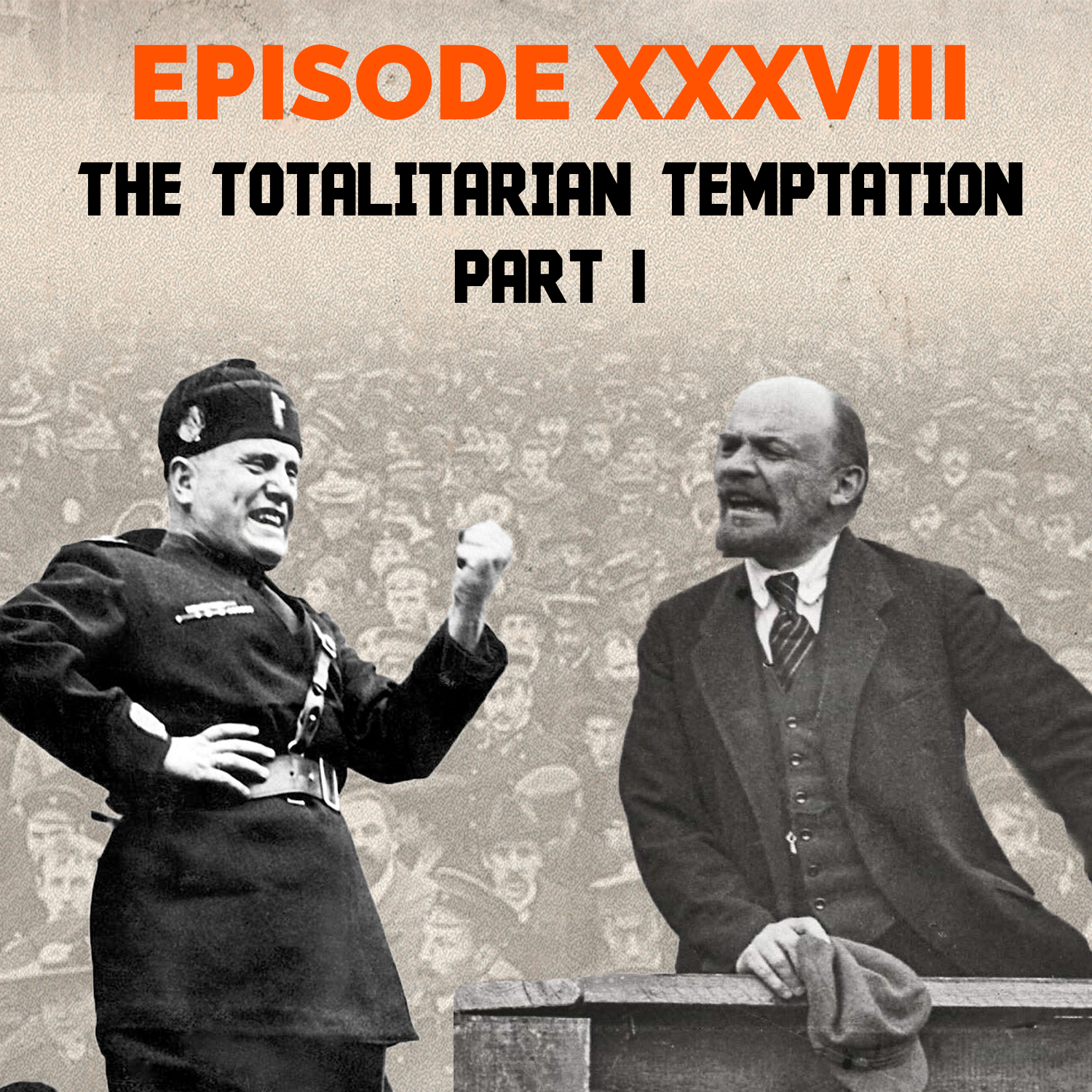
Episode 37 – Expert Opinion – The History of Mass Surveillance, with Andreas Marklund
In 2013, NSA contractor Edward Snowden sent shockwaves through the American government when he leaked information exposing a number of vast mass surveillance programs providing the U.S. Government and its allies access to global digital communication networks.
The harvesting of data by world governments has been aided by vast data collection by big tech companies like Google and Facebook, whose business models rely on knowing more about their users than their users know about themselves. The combination of state and corporate mass surveillance of the digital sphere has obvious consequences for both freedom of expression and information.
Private conversations are rarely ever truly private and the centralization of communication platforms allows both governments and corporations to censor and control the flow of information. This development has changed public perception of the digital age from one of unlimited freedom, promise, and possibilities to one of cynicism, fear, and paranoia.
But the age of mass surveillance was not ushered in with the internet. In fact, just as it is today, in its infancy, mass surveillance was dominated by the leading liberal democracy of the day: Great Britain laid the foundation for the practice of mass surveillance at the outbreak of World War I. And, as in the 21st century, the issues that drove the push for mass surveillance and censorship at scale were national security and fears of extremism, disinformation, and propaganda.
With us to discuss the history of mass surveillance and its consequences for freedom of expression and information today is Andreas Marklund, head of research at Copenhagen’s ENIGMA Museum of Communication.
In this conversation we will explore:
- How Britain built a system of mass surveillance during World War I through controlling and tapping global communication cables;
- How Britain’s interception of the so-called Zimmermann Telegram changed the course of history;
- How “fake news” and propaganda became a main concern and cause for censorship and manipulation of information by governments;
- How news agencies like Reuters became involved in this communication war through the influence of the British Ministry of Information;
- How telephone communications were systematically surveilled and censored in Scandinavia during World War I;
- How mass surveillance and censorship justified by war became useful tools for more general surveillance;
- How the development of radio caused panic among governments who could no longer control or access the flow of information across borders;
- How, according to a secret report, Nazi Germany exploited mass surveillance “to give the government… such far-reaching insight into the thoughts, feelings, and aspirations of the entire German people as had never been known in all history;”
- The similarities and differences between the mass surveillance systems built during World War I and those of today;
- How mass surveillance differs in democracies and totalitarian states; and
- Whether mass surveillance is an inevitable part of modern life, even in liberal democracies.
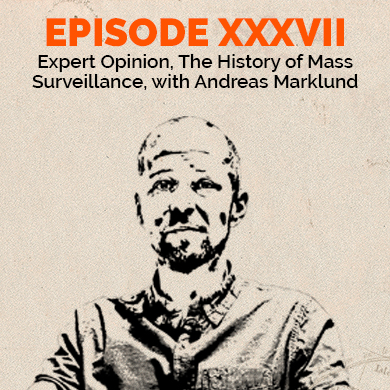
Episode 36 – Expert Opinion – Thomas Healy on how Oliver Wendell Holmes changed the history of free speech in America
On March 4, 1801, Thomas Jefferson, the newly elected president, gave his first inaugural address. Jefferson eloquently dismissed the logic behind the Sedition Act of 1798, which had sent Republican critics of then-Federalist President John Adams to prison:
We are all republicans: we are all federalists. If there be any among us who would wish to dissolve this Union, or to change its republican form, let them stand undisturbed as monuments of the safety with which error of opinion may be tolerated, where reason is left free to combat it.
Based on this strong commitment to a robust protection of free speech, one might have expected the First Amendment to play a key role in entrenching the Jeffersonian vision of free expression. But instead, it became an almost dead letter for more than a century until revived by an iconic but unlikely champion of the First Amendment: Supreme Court Justice Oliver Wendell Holmes.
In this conversation, professor Thomas Healy explains how Wendell Holmes changed his mind on free speech and laid the foundation for the current strong legal protection of the First Amendment. Thomas Healy is a professor of law at Seton Hall University School of Law and the author of the award-winning book “The Great Dissent: How Oliver Wendell Holmes Changed His Mind–And Changed the History of Free Speech in America”.
The conversation will explore:
- Why the First Amendment remained a dead letter in 19th century America.
- How Oliver Wendell Holmes’ background shaped his opinions and outlook.
- How Oliver Wendell Holmes long upheld a “Blackstonian” conception of free speech protecting only against prior restraints on, not subsequent punishments of, speech.
- How the Blackstonian conception of free speech permitted the federal and local governments to restrict and punish everything from peaceful public protests, obscenity, and political speech of “bad tendency.”
- How the Espionage Act of 1917 and the Sedition Act of 1918 led to dramatic restrictions of political speech and indictments of thousands of activists protesting American participation in World War I.
- The remarkable development in Wendell Holmes’ conception of the First Amendment, from his opinion upholding conviction in the 1919 case of Schenck v. United States to his famous dissenting opinion in Abrams v. United States.
- How a number of young scholars like Learned Hand, Harold Laski, Zechariah Chafee, and Felix Frankfurter were instrumental in changing Wendell Holmes’ mind on the limits of free speech.
- How Oliver Wendell Holmes introduced the clear and present danger test, which would become an important test under First Amendment law over the coming decades.
- Whether Wendell Holmes’ legacy will endure in the 21st century, and would he even want it to in the digital age?
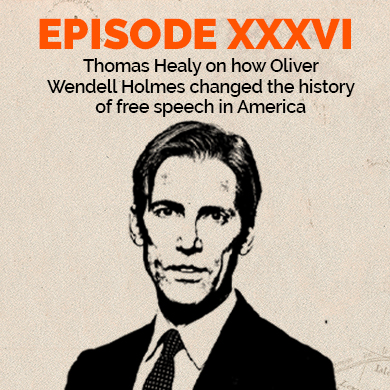
Episode 35 – White Man´s Burden: Empire, Liberalism and Censorship
During the mass protests that have rocked Hong Kong since June 2019 pro-democracy protestors have waved Union Jack flags and been singing God Save the Queen. A clear rejection of the authoritarian political system of mainland China in favor of the political system inherited from the British colonial past based on the rule of law and political liberties including freedom of the press.
The symbolic value of the pro-British sentiments of Hong Kong´s protestors would not be lost on Britain´s imperial masterminds and administrators. Many of whom thought that empire and liberalism went hand in hand. In a combination of genuine goodwill and blatant ethnocentrism, the British colonizers took on the burden of civilizing the world and ensuring that the sun would never set on press freedom.
But the actual practice of British colonialism was very different from the idealized version dreamt up by English liberal imperialists and modern Hong Kong protestors. Colonial officials were more than willing to use censorship and repression when news and ideas were thought to threaten British interests in places like Hong Kong, India and Africa. The laws and practices that they used for those purposes not only stifled criticism of colonialism but also did so on the basis of crude racial and ethnic prejudices. This created a parallel system of censorship and repression that severely undermined the liberal credentials of Britain and included victims like Mahatma Gandhi and the Kenyan activist Harry Thuku. And as we shall see the British legacy of censorship and repression still shapes the climate for free speech in some former colonies.
Much the same schizophrenia characterized France´s colonial empire supposedly built on its commitment to universal human rights stretching back to the Declaration of the Rights of Man. A commitment that became difficult to sustain when the colonized insisted that freedom and imperialism was incompatible.
In this episode, we´ll see how British and French colonial authorities struggled to reconcile their commitment to liberalism with colonial empire and
- How the British crafted an Indian Penal Code that criminalized sedition, communal hate speech and blasphemy
- How prominent Indian nationalists like Bal Gangadhar Tilak and Mahatma Gandhi were convicted of sedition
- How Gandhi gave a stirring defense of the fundamental value of free speech when tried for sedition
- How Indians in East Africa collaborated with Africans in spreading anti-colonial dissent in Indian owned newspapers and publications,
- How African nationalists protesting racist policies and exploitation were exiled by the British
- How British West Africa developed a free and thriving press until British repression in the 1930s
- How the British introduced preventive censorship in Hong Kong during World War 1
- How the British maintained a separate system of preventive censorship of Chinese language newspapers in Hong Kong even after the war,
- How the British adopted special censorship guidelines for cinema based on crude racial and ethnic considerations
- How Chinese language newspapers mounted a principled defense of press freedom in Hong Kong,
- How the French in Indochina (Vietnam) went from tolerance to active repression of local newspapers,
- How African activists were exiled to the “Dry Guillotine” of the Mauritanian desert when protesting French rule,
Episode 34 – The Age of Reaction: The fall and rise of free speech in 19th century Europe
The 18th century ended with free speech in full retreat. With the French Revolution, the call for “Enlightenment Now!” was no longer seen as the harbinger of humanity’s inevitable march toward progress. It had become synonymous with radical forces of destruction drowning monarchy, tradition, and religion in the blood of kings, aristocrats, and nuns.
With the defeat of Napoleon in 1814, conservatives and monarchs were firmly back in power — and they had no intention of letting go. Never again were those rulers who put down wild-eyed revolutionaries like mad dogs going to allow radicals to seduce the people with lofty principles and propaganda.
In order to rebuild a stabile Europe with respect for authority and tradition, freedom of speech had to be reined in. Even in supposedly liberal Britain, William Pitt’s anti-revolutionary “reign of terror” of the 1790s was revived and intensified in the 1810s and 20s. In this episode, we see how European rulers weaved an intricate web of censorship and repression across the continent. We will see:
- How the Congress of Vienna entrenched an authoritarian and traditionalist political order in Europe after the battle of Waterloo
- How the Carlsbad Decrees centralized preventive censorship and limited academic freedom across the German Confederation
- How German writers like Heinrich Heine and Karl Marx fought an uphill battle against censorship and repression
- How European censorship was driven by a fear of the increasingly literate masses
- How the British government used the crimes of seditious and blasphemous libel to harass and intimidate political radicals and reformers
- How the Peterloo Massacre of workers in Manchester radicalized opposition to the Tory government and intensified the calls for reform
- How the radical publisher Richard Carlile spent 10 years in prison for selling deist and republican publications, including Tom Paine’s “Age of Reason”
- How Carlile and his workers ultimately defeated the government with a constant stream of “seditious” and “blasphemous” publications, despite being imprisoned and harassed
- How James and John Stuart Mill contributed to expanding the British tolerance of controversial religious and political ideas as the 19th century progressed
- How the French Revolutions of 1830 and 1848 led to brief periods of liberal euphoria and the collapse of censorship across Europe, only to be crushed by counter-revolutionary forces
- How the Iron Chancellor Otto Von Bismarck used a national emergency to crush socialist and social democratic newspapers and publications in the second half of the 19th century
- How the idea of press freedom and the mechanization of the printing press made pre-publication censorship impossible for most governments
- How press freedom regained its momentum at the end of the 19th century
Special Edition – A conversation with Professor David Kaye, UN Special Rapporteur on the right to freedom of opinion and expression
In this Special Edition of Clear And Present Danger we leave the past and jump into the present for a discussion on how international human rights standards are relevant to the burning question of where to draw the line online. With me to discuss this issue is Professor David Kaye who is the UN Special Rapporteur on the promotion and protection of the right to freedom of opinion and expression – as well as professor of law at the University of California, Irvine, School of Law. Professor Kaye is also the author of the recent book “Speech Police”. On 21 October David Kaye Presented a report to the UN General Assembly that attempts to provide guidance to both states and tech companies on how to safeguard online free expression while minimizing harms.
- The conversation delves into questions such as
- What is the state of free speech today
- how to reconcile the “schizophrenic” standards on free expression and hate speech under human rights law
- how the UN human rights system has developed standards that are more speech protective than the European human rights system
- why the so-called digital era has resulted in more rather than fewer restrictions on free speech globally
- whether tech companies should base their community standards on human rights principles
- whether attempts by European democracies like Germany and France to limit online hate speech creates a risk of “moderation without representation” for users of social media platforms in the US and elsewhere
- how to assess Mark Zuckerberg´s recent speech on free expression at Georgetown University
Episode 33 - Counter-Revolution: Dutch Patriots, Tom Paine´s Rights of Man and the campaign against Seditious Writings
Faced with bloody terrorism democratic Europe has often reacted with tough measures. The UK Counter-Terrorism and Border Security Act of 2019 criminalizes expressing an opinion that is “supportive” of a proscribed organization if done in a way that is “reckless” as to whether it encourages support of terrorism. This makes it rather unnerving to jump into, for example, a Twitter thread on the age-old discussion of whether various groups are terrorists or freedom fighters.
In this episode we’ll see how governments in the late 18th century reacted to a different kind of terror: the spread of revolutionary ideas and practice that shook the established order to the ground, including the actual Terror unleashed after the French Revolution spiraled out of control. Dutch “Patriots” took their cue from the American Revolution, using freedom of speech and hard-hitting newspapers to hammer away at the Stadtholder regime. How would the supposedly liberal and tolerant Dutch react when revolutionary ideas hit fever pitch in the 1780s.
In Britain, a pamphlet war between Edmund Burke and Thomas Paine unleashed an unprecedented discussion of first principles that energized the lower classes and frightened the government. Could Britain maintain the delicate balance between order and liberty while holding at bay both revolutionary ideas and armies of France?
In this episode, we will discuss:
- How the Dutch “Patriot” movement used free speech and partisan newspapers to press for democratic reform and tolerance
- How the pamphlet “To the People of the Netherlands” became a rallying cry of the Patriot side
- How the Stadtholder regime used repression and ultimately foreign invasion to silence the Patriots,
- How the French Revolution briefly brought free speech and democracy back with the establishment of the Batavian Republic
- How Burkes “Reflections on the Revolution in France” unleashed a British pamphlet war for and against the principles of the French Revolution
- How Thomas Paine´s reply to Burke – “Rights of Man” – became the world’s highest selling book and spread the idea of democratic reform to the masses
- How Prime Minister William Pitt responded by increasing repression of freedom of speech and assembly
- How the “Royal Proclamation Against Seditious Writings and Publications” unleashed a witch hunt for members of the democratic reform movement
- How Tom Paine became an enemy of the state, under constant surveillance, convicted of seditious libel and burned in effigy in towns all over Britain
Episode 32 - Policing opinion in the French Revolution with Charles Walton
On Aug. 26, 1789, France’s National Assembly adopted the Declaration of the Rights of Man and of the Citizen. Article 11 of the Declaration proclaimed:
The free communication of ideas and opinions is one of the most precious of the rights of man. Every citizen may, accordingly, speak, write, and print with freedom, but shall be responsible for such abuses of this freedom as shall be defined by law.
The French Revolution abolished pre-publication censorship and prompted a flood of political publications. But revolutionaries were deeply divided over where to draw the line between the declaration’s celebration of “freedom” and condemnation of “abuse” amidst a public sphere in which populists used increasingly incendiary rhetoric to sow division and discord. Old Regime concepts of honor, calumny, and libel survived the Revolution and evolved to justify the policing of opinions perceived to threaten the order and authority of post-revolutionary France, increasingly divided by competing factions. Ultimately, even liberals like Tom Paine — an ardent defender of the integrity and benevolence of the Revolution — had to succumb to the idea of political suppression as the Reign of Terror claimed thousands of victims condemned for speech crimes.
In this conversation, French Revolution expert Charles Walton sheds light on the evolution of press freedom and suppression during the Revolution. Walton is the director of the Early Modern and Eighteenth Century Centre at the University of Warwick in the U.K., has taught at both Yale University and Paris’ Sciences Po, and is the author of the prize-winning book, “Policing Public Opinion in the French Revolution: The Culture of Calumny and the Problem of Free Speech.”
The conversation will explore:
- How the French Revolution abolished pre-publication censorship and unleashed a flood of publications;
- How almost all parts of French society continued to believe in Old Regime restrictions on post-publication censorship;
- How Jacobins, including Maximilien Robespierre, were amongst the most libertarian proponents of free speech in the early part of the Revolution;
- How the climate of free speech under the French Revolution compares to the climate during and after the American Revolution;
- How free speech restrictions became a tool of bitter political partisans;
- How approximately a third of those indicted by revolutionary tribunals during the Terror were targeted for speech crimes, resulting in thousands of executions;
- How the French feminist and author of the Declaration of the Rights of Woman, Olympe de Gouges, became a prominent victim of the Revolution;
- How the legal restrictions on free speech were tightened after the Terror;
- Whether the ideas of Rousseau contributed to the Terror;
- How competing ideas of free speech and mores stretching back to the Enlightenment help explain contemporary France’s complicated relationship with free speech.
Episode 31 - The Old Regime
In Nov. 2018, French President Emanuel Macron declared war on “offensive and hateful content” on the internet. Subsequently, France adopted strict laws against both online hate speech and fake news, which is thought to threaten France’s liberal democratic values.
But this is not the first time in history that France has sought to combat supposedly “dangerous content” spread by clandestine networks intent on undermining essential values and moeurs.
When Paris became the capital of the High-Enlightenment around the mid-eighteenth century, the Old Regime monarchy created a Maginot Line of overlapping pre- and post-publication censorship. This system was intended to ensure that good books were encouraged and privileged while bad books that attacked the monarchy and Catholic orthodoxy or morals were kept out of circulation or suppressed.
Just as French regulators today may struggle to distinguish between hate and political speech, it was not easy to draw the line between useful new ideas and subversive philosophy in a society in flux. As Enlightenment ideas took hold and literacy increased, a public sphere emerged from under the shadow of royal absolutism and strict religious orthodoxy. In this sphere, Enlightenment philosophers like Voltaire and Diderot fought to expand the limits of tolerance and free speech, while counter-enlightenment anti-philosophers tried to stem the rising tide of what they saw as godless sedition. Each faction tried to exert decisive influence over the institutions of the Old Regime and land the decisive blow in the battle over the public sphere shaping French mores.
The stakes were high and the outcome uncertain. But perhaps the events of pre-revolutionary France may help explain why even today the democratically elected president of France has taken the lead in fighting the nebulous concept of “offensive and hateful content.”
In this episode, we will explore:
- How salons, cafés, and an increase in literacy and print created a new public sphere
- The ins and outs of pre-and post-publication censorship in the Old Regime
- How censorship and book monopolies created a booming black market, flooding France with philosophy and pornography
- How a culture of honor limited free expression
- How royal censors both furthered and frustrated the efforts of Enlightenment authors
- How a group of radical Enlightenment philosophers challenged religious and moral authorities from the Salon of Baron D’Holbach and through the pages of the Encyclopédie — a bold and subversive attempt to compile all the knowledge in the world
- How France’s chief censor saved the Encylopédie from destruction and ensured its eventual triumph
- How a 19-year-old teenager became the last person to be executed for blasphemy in France
- How French philosophers including Diderot, Rousseau, and Voltaire failed to formulate a coherent and robust free speech doctrine
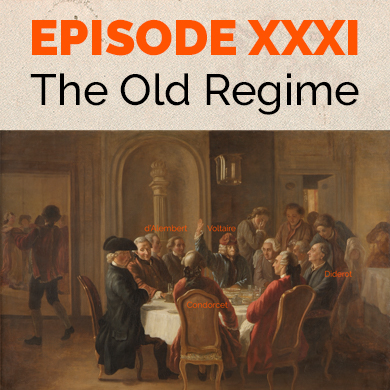
Episode 30 – Northern Lights, The Scandinavian Press Freedom Breakthrough
In the 1760s and 1770s, Sweden and Denmark-Norway shortly became the epicenter of press freedom protections in Enlightenment Europe.
In 1766, the Swedish Diet passed the Press Freedom Act, making Sweden the first country in the world to provide constitutional protection to both the principles of press freedom and freedom of information. In 1770, Denmark-Norway, under the de-facto rule of German physician Johan Friedrich Struensee, became the first country in the world to abolish any and all restrictions on press freedom. Almost overnight, both Sweden and Denmark-Norway experienced a new vibrant public sphere with debate, discussion and trolling.
But in 1772, King Gustav III ended Sweden’s so-called Age of Liberty — and with it, the era of the liberal press. That same year, Struensee lost not only his power, but his hands, legs — and head — as he was dismembered and ousted in a coup that severely restricted press freedom.
But how did Sweden and Denmark-Norway become trailblazers of press freedom, if only for the briefest of time? Find out in this episode where we explore:
- How Sweden’s Age of Liberty introduced parliamentarism but kept freedom of speech suppressed by censorship
- How writers like Peter Forsskål and Anders Nordencrantz argued for press freedom inspired by Enlightenment ideals
- How Peter Forsskål’s “Thoughts on Civil Liberty” was banned but still inspired a new generation of Swedish politicians
- How the MP and priest Anders Chydenius paved the way for the Press Freedom Act in the Swedish Parliament
- How Struensee became the man behind the throne of the mentally ill King Christian VII
- How Struensee tried to usher in Enlightenment Now! with 1800 orders and edicts in 16 months
- How Struensee eliminated two centuries of censorship with the stroke of a pen
- How Struensee’s tsunami of Enlightenment reforms and sexual liberation came back to haunt him in critical pamphlets and newspapers
- How Struensee had to compromise his free speech ideals in 1771
- How Struensee was ousted and executed by disgruntled nobles who ended his free speech experimentation and cracked down on dissent
- Why critical writings about herring fishery should never be allowed
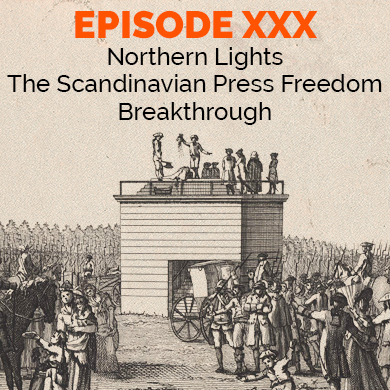
Episode 29 – The Philosopher King – Enlightened Despotism, part 2, Prussia
In his famous essay “What is Enlightenment?” the Prussian philosopher Immanuel Kant declared: “[E]nlightenment requires nothing but freedom … to make public use of one’s reason in all matters. Now I hear the cry from all sides: ‘Do not argue!’ … Only one ruler in the world says: ‘Argue as much as you please, but obey!’”
That ruler was Frederick the Great — and his influence was not lost on Kant.
“[T]his age is the age of enlightenment,” Kant declared. “[T]he century of Frederick.”
Frederick the Great ruled Prussia from 1740 to 1786 and launched a blitzkrieg of Enlightenment reforms impacting religious tolerance and freedom of speech. He was hailed as a philosopher king by Voltaire and gave refuge to scandalous writers who had been persecuted around Europe. But his rule was erratic, and often Absolutism would trump Enlightenment ideals.
In this episode, we cover Frederick the Great’s reign and his attitude and policies towards freedom of thought and the press. Topics include:
- How Frederick’s Enlightenment ideals reformed Prussia
- How he favored Enlightenment for the elite, but not the masses
- How Voltaire, Diderot, and D’Holbach clashed over the merits of Frederick’s enlightened despotism
- How Frederick offered refuge to scandalous authors such as the French atheist Julien Offray de La Mettrie
- The dos and don’ts of Prussian censorship
- How the enlightened Prussian public sphere differed from its French and American counterparts
- How the enlightened Prussian elite, including Kant and Moses Mendelssohn, praised both freedom of speech and Frederick the Great’s Enlightened Despotism
- How the death of Frederick and the ascension of Friedrich Wilhelm resulted in a backlash against enlightenment values, including free speech and religious tolerance
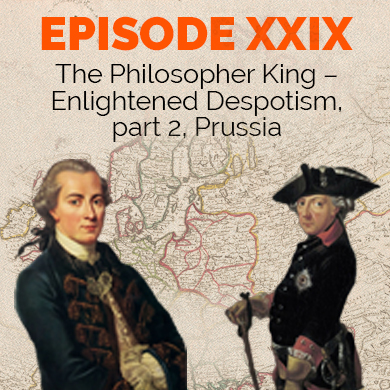
Episode 28 – Writing on Human Skin – Enlightened Despotism, part I, Russia
The Enlightenment’s emphasis on science, progress, tolerance and rationality attracted not only philosophers — even absolute monarchs dreamt of “Enlightenment Now.” But how do you incorporate the enlightenment’s revelations without undermining the traditions and ideas that legitimate absolute rule in the first place? Fortunately for Europe’s modernizing rulers, some of the continent’s most prominent 18th century philosophers — including Voltaire — stood ready to praise the new winds of “enlightened despotism” that took hold in places like Russia and Prussia.
In this episode, we cover Russia — the ground zero of enlightened despotism — and Tsar Peter the Great, who, according to Voltaire, single-handedly dragged the country across both time and place from the Dark Ages and Asia into the 18th century and Europe.
Among the topics tackled are:
- How the benefits of modern science, learning and the fresh air of religious tolerance attracted Peter the Great;
- How Peter believed in “moving fast and breaking tradition” and combined enlightenment reforms with ruthless suppression;
- How Peter kicked off his modernizing reform with a fashion statement: ordering men to shave their beards and women to dress like Parisians;
- How Peter’s reforms planted the seed for more liberal Enlightenment reforms;
- How Catherine the Great introduced the idea and principle of freedom of speech into Russia’s deeply traditional culture;
- How Catherine modeled her “Great Instruction” on the ideas of Montesquieu and Beccaria and corresponded with thinkers like Voltaire, Diderot, and d’Alembert;
- How Catherine reversed her course and tightened censorship;
- How the French Revolution caused Catherine to crack down on radical Russian writers like Alexander Radishchev and Nikolay Novikov; and
- How Alexander Radishchev relied on “freedom of the press as the great bulwark of liberty” to write the most radical and robust defense of free speech in Russian history.
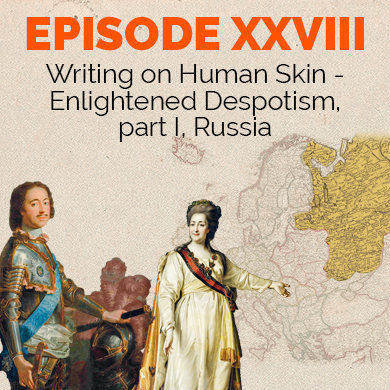
Episode 27 - How Enlightening
After a brief detour into the present, we return to Ground Zero of the Enlightenment in 18th century Europe, with this recap of past episodes and brief overview of the themes and countries to be explored in the upcoming episodes as rationality and secularization sweeps the continent turning tradition and authority upside down. Among other we touch upon:
- How the early enlightenment resulted in greater religious tolerance’
- Why tolerance did not automatically go hand in hand with freedom of speech
- How the “Dutch Dark Web” spread radical philosophy across Europe through clandestine printing presses and networks
- How the treatise of “The Three Impostors” shocked Europe
- How women enjoyed greater “conversational freedom” to discuss science, philosophy and religion
- How erotic and obscene literature made headway across the continent
- Why European states´ book production and consumption went hand in hand with their respective censorship regime
Why have kings, emperors, and governments killed and imprisoned people to shut them up? And why have countless people risked death and imprisonment to express their beliefs? Jacob Mchangama guides you through the history of free speech from the trial of Socrates to the Great Firewall.
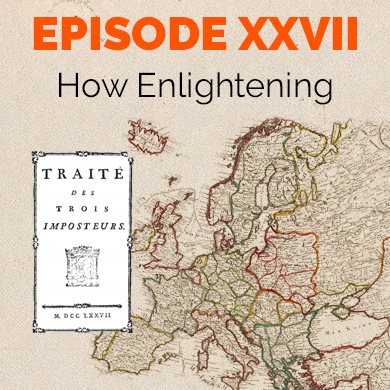
Episode 26 - Oslo Freedom Forum Special with Megha Rajagopalan and Yuan Yang
June 4th, 2019 marks the 30th anniversary of the bloody culmination of the Chinese government´s Tiananmen Massacre of pro-democracy students and activists. But all public discussion and memories of the massacre have been erased within China itself. In our second episode from the Oslo Freedom Forum we will take a trip behind the Great Firewall into modern day China where the most ambitious and sophisticated attempt to control the flow and content of information in the history of mankind is taking place. To enlighten us, we sat down with Megha Rajagopalan who is a world correspondent for BuzzFeed News and Yuan Yang who is Financial Times´s Beijing correspondent. In this discussion we explore:
- The structure of Chinese online censorship and surveillance, in terms of scope and purpose.
- How the Chinese Government applies new technologies like facial recognition and AI to ensure conformity in thoughts and action.
- How the online public is being ‘flooded’ with pro-government propaganda in order to suppress criticism.
- How Xinjiang province has been turned into a surveillance police state
- How Western Companies, who enjoy the protection of the rule of law, play a role in the Chinese censorship system
- How China is exporting its super charged system on censorship beyond its borders, and why even western liberal democracies may not be immune.
- How the extensive censorship may actually limit the Chinese government´s endeavors to control and monitor its citizens.
- Why there may still be grounds for optimism
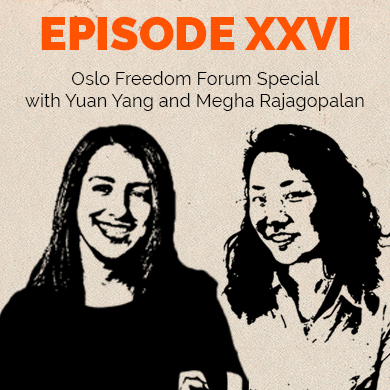
Episode 25 - Oslo Freedom Forum Special with Larry Diamond
Today´s episode is going to be a radical departure from the chronological timeline of the general podcast so far. I´m currently in Oslo for the annual Oslo Freedom Forum, organized by the Human Rights Foundation. The Oslo Freedom Forum is a unique gathering of human rights and democracy activists from all over the world joining forces to connect, share ideas and build alliances to strengthen freedom and undermine authoritarianism. To take advantage of the Oslo Freedom Forum I have decided to do a number of Expert Opinions on current cutting-edge topics related to free speech. The first episode will look at the why the so-called “Democratic Recession” is mirrored by a “Free Speech Recession,” with Stanford Professor Larry Diamond. In this discussion we explore:
- The nature and consequences of the “Democratic Recession”
- Why restricting freedom of expression is the precondition for the assault on democracy
- Why and modern authoritarian populist repression differs from the totalitarian methods of the 20th century
- An exposé of the step-by-step authoritarian´s guide to dismantle independent media, dissent and civil society (meant as a warning not a manual!)
- Why restrictions of free speech in liberal democracies embolden censorship efforts in authoritarian regimes
- The consequences of the current American administration´s hostility to independent media and disengagement from promoting free speech norms
- Whether social media has been a net benefit or liability to the causes of free speech and democracy
- Why and how global norms matter, and can help reverse the “Free Speech Recession”
Larry Diamond is professor of Political Science and Sociology at Stanford University and Senior Fellow at the Hoover Institution, and founding co-editor of the Journal of Democracy. He has written extensively on democracy and is most recently the author of Ill Winds: Saving Democracy from Russian Rage, Chinese Ambition, and American Complacency.
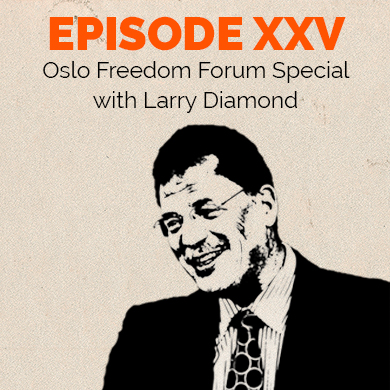
Episode 24 - Expert Opinion - Stephen Solomon part two: The Sedition Act
In 1787, the newly authored U.S. Constitution was sent out to the states for ratification. Despite fierce objections from Anti-Federalists, the Constitution did not include a bill of rights protecting freedom of speech and the press. The Anti-Federalist newspaper the Independent Gazetteer published an ironic comment on what the future of free speech would look like if the Constitution was ratified:
Ah! what glorious days are coming; how I anticipate the brilliancy of the American court! … [H]ere is the president going in state to the senate house to confirm the law for the abolition of the liberty of the press. Men and brethren will not these things be so?
Even though the Bill of Rights was adopted in 1791, the Independent Gazetteer’s withering sarcasm had been prophetic: On July 14, 1798, President John Adams signed the Sedition Act into law, making it a crime to “write, print, utter, or publish…any false, scandalous and malicious writing against the government of the United States, or either house of the Congress of the United States, or the President of the United States, with intent to defame…or to bring them…into contempt or disrepute; or to excite against them…the hatred of the good people of the United States.”
A mere seven years after the adoption of the Bill of Rights and the First Amendment’s promise that “Congress shall make no law…abridging the freedom of speech, or of the press,” Congress had done just that. The Sedition Act paved the way for the prosecution and imprisonment of both journalists, editors, politicians, and ordinary Americans engaging in political, satirical and symbolic speech.
In part two of this conversation with NYU professor Stephen Solomon, we explore how the Americans who had championed freedom of speech as the “great bulwark of liberty” and thumbed their noses at English sedition laws in the lead up to the Revolution came to adopt their own sedition law. We discuss issues including:
- The deeply polarized political environment of the 1790s;
- The fiercely partisan attacks of both Federalist and Democratic-Republican newspapers on political opponents;
- How the Sedition Act differed from seditious libel under English common law;
- The arguments for and against the constitutionality of the Sedition Act;
- James Madison’s eloquent and elaborate defense of robust free speech protections;
- The congressman, journalists and ordinary Americans who were prosecuted and imprisoned for voicing their opinions;
- The prosecutorial zeal of Secretary of State Matthew Pickering and Supreme Court Justice Samuel Chase (aka “Old Bacon Face”);
- The unintended consequences of the Sedition Act which strengthened Democratic-Republican newspapers and politicians and weakened Federalists; and
- Thomas Jefferson’s magnanimous inauguration speech.
Marjorie Deane Professor of Journalism at New York University's Arthur L. Carter Journalism Institute; teaches First Amendment law and is founding editor of First Amendment Watch, which covers current conflicts over freedom of expression. Author of Revolutionary Dissent: How the Founding Generation Created the Freedom of Speech.
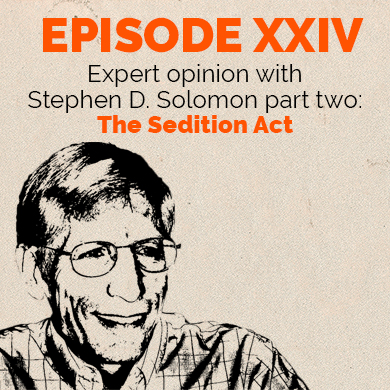
Episode 23 - Expert Opinion - Stephen Solomon
The First Amendment of the US Constitution was adopted as part of the Bill of Rights in 1791. This “Great bulwark of liberty” provides that
“Congress shall make no law respecting an establishment of religion, or prohibiting the free exercise thereof; or abridging the freedom of speech, or of the press; or the right of the people peaceably to assemble, and to petition the government for a redress of grievances.”
In this conversation with professor Stephen Solomon we will explore the origins and drafting history of the First Amendment including:
- The inspiration from early state constitutions and declarations in Virginia and Pennsylvania
- The Articles of Confederation
- The fierce debate surrounding the Constitutional Convention and ratification process.
- How Federalists and anti-Federalists clashed over the necessity of a bill of rights
- How some Federalists used the Heckler´s Veto to silence anti-Federalists
- James Madison´s first draft bill of rights and why Madison thought that the American conception of freedom of speech differed substantially from the British conception
- Whether Freedom of Speech is really “the First Freedom”
- What were the essential justification for freedom of speech envisaged by the Founders
- Whether the Founders would agree with 21. Century standards of free speech as developed by the Supreme Court
Marjorie Deane Professor of Journalism at New York University's Arthur L. Carter Journalism Institute; teaches First Amendment law and is founding editor of First Amendment Watch, which covers current conflicts over freedom of expression. Author of Revolutionary Dissent: How the Founding Generation Created the Freedom of Speech.
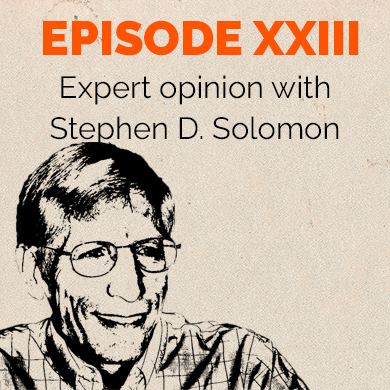
Episode 22 - Fighting Words
In the second half of the 18th century, American Patriots showed that freedom of the press was a potent weapon against authority. Not even the world’s most formidable empire could stop them from speaking truth, lies, and insults to power.
In 1765, the announcement of the Stamp Act kicked off a tsunami of dissent in Colonial pamphlets, newspapers, taverns, and town meetings. The outpouring of protest shaped a public opinion increasingly hostile to taxation without representation and in favor of popular sovereignty. Additional taxes and disabilities imposed by Parliament further radicalized the Patriot side and the anti-British propaganda. The revolutionary dissent included both principled arguments, pamphlet wars, slander, and some genuine “fake news.”
Since prosecutions for seditious libel had effectively been abolished by the Zenger case in 1735 (see episode 21), the British were powerless to stop the onslaught of Patriot fighting words. More than ever, press freedom had become the “Great Bulwark of Liberty.”
Though Patriots constantly invoked the principle of freedom of speech, Loyalist printers and newspapers were subjected to the “Patriot’s Veto” through intimidation and mob violence.
Thomas Paine’s pamphlet “Common Sense” became a sensation and pushed many Patriot fence-sitters into the independence camp. And just before and after the adoption of the Declaration of Independence, several states protected freedom of the press in rights declarations.
In this episode, we’ll explore:
- How a mix of ideas from classical antiquity and the European Enlightenment inspired the founding generation;
- How the democratization of access to print technology created a vibrant public sphere in Colonial America;
- How pamphlet wars were the 18th century equivalent of Twitter feuds;
- How the Boston Gazette became the centerpiece of #theresistance and the launch pad for fighting words directed at the British and Loyalists;
- How symbolic speech such as liberty trees, liberty poles and cartoons rallied popular opinion;
- How the Green Dragon Tavern in Boston became the “Headquarters of the Revolution”;
- How newspapers used “fake news” and analog “photoshopping” to further the Patriot cause;
- How Loyalist printers were silenced through intimidation and mob violence with the tacit consent of prominent Patriots like Thomas Paine and James Madison;
- How Thomas Paine’s “Common Sense” steeled Patriots’ resolve and made the case for independence; and
- How the ideas of freedom of the press and speech were included in rights declarations of states like Virginia and Pennsylvania in 1776.
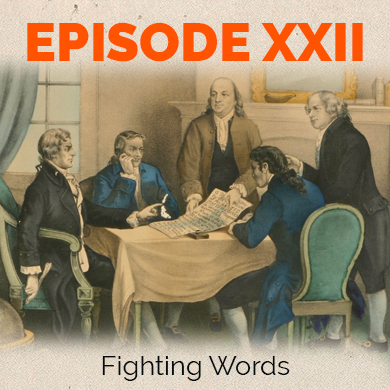
Episode 21 - The Bulwark of Liberty
18th century America was impacted and influenced by the so-called Glorious Revolution in the Motherland. And no-one had a bigger impact on American attitudes towards freedom of speech than Cato’s Letters written by the Radical Whigs John Trenchard and Thomas Gordon. Cato´s Letters created a powerful free speech meme, that went viral in the colonies: “Freedom of Speech is the great Bulwark of Liberty”. The reach of Cato’s principles grew exponentially as colonists liked, shared and commented on them in newspapers, pamphlets and taverns. Americans were persuaded that “Without freedom of thought, there can be no such thing as wisdom; and no such thing as publick liberty, without freedom of speech: Which is the right of every man”. As a consequence, grand juries and juries refused to indict and convict colonists for seditious libel when criticizing governments and officials.
Despite the practical defeat of libels laws in colonial courts, legislative assemblies continued to threaten free speech. Under legislative privilege provocative writers could be jailed and fined by their own representatives. And even American heroes were sometimes willing to sacrifice principle.
In this episode we’ll explore
- How coffee-houses expanded the public sphere by cultivating the sharing of news and ideas, including revolutionary ones.
- How the common law crime of seditious libel impacted writers
- How English writers including Matthew Tindal, John Trenchard and Thomas Gordon paved the way for American ideas on free speech
- How the editor of the New England Courant in Boston combined anti-vaxxer propaganda with free speech advocacy
- How the 16-year old Benjamin Franklin used Cato’s Letters to argue for freedom of speech when his brother James was in jail
- How the New York Weekly Journal became America’s first opposition newspaper and justified its savage hit pieces on New York governor William Cosby with Cato’s free speech principles
- How a jury acquitted the printer of the New York Weekly Journal Peter Zenger, even though he was guilty according to the law
- How legislative privilege was used to punish colonialists for offending their own representatives
- How Benjamin Franklin defended legislative privilege and the jailing of a Pennsylvania man for his writings
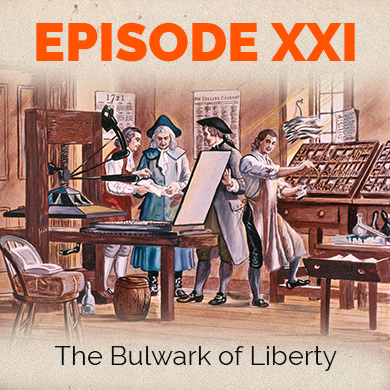
Episode 20 - The Seeds of Enlightenment
1685 was a watershed year for events that would lead to what we call the Enlightenment. France´s Sun King Louis XIV revoked the Edict of Nantes and initiated a policy of religious persecution of Protestants. In England, the Catholic James II assumed the throne to the horror of the protestant majority in Parliament. From their exiles in the Dutch Republic, the French philosopher Pierre Bayle wrote his groundbreaking defense of religious tolerance “Commentaire Philosophique” and John Locke wrote the original Latin version of his Letter Concerning Toleration. In this episode, we trace the seeds of the Enlightenment covering events in France, the Dutch Republic, and England.
- Why did Louis XIV revoke the Edict of Nantes and what were the consequences?
- Why did the Dutch Republic become famous for its religious tolerance and open debate in the 17th Century?
- Who was the late 16th century Dutch thinker who opposed censorship six decades before Milton?
- Why were several members of Spinoza´s circle of radical Dutch freethinkers targeted by censorship and repression?
- Why was the complete work of Spinoza and even the reworking of his ideas banned in the Dutch Republic?
- Why were Pierre Bayle’s ideas so controversial that he lost his professorship?
- Why did the Anglican majority in the English Parliament oppose religious tolerance favoured by both Charles II and James II?
- How tolerant was the Toleration Act really?
- How did John Locke provide the intellectual killer blow to the English Licensing Act?
- What were the consequences of the end of pre-publication censorship in England?
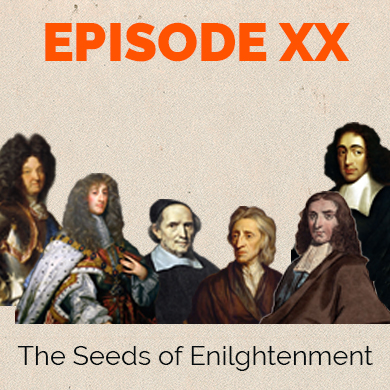
Episode 19 – Expert Opinion – Steven Nadler on Spinoza’s ‘book forged in hell’ and the right to ‘think what you like and say what you think‘
Baruch Spinoza (also known as Benedict de Spinoza) was born in Amsterdam in 1632. While his given name means “blessing” in both Hebrew and Latin, Spinoza’s “Theological-political treatise” from 1670 was condemned as “a book forged in hell.” Spinoza himself was denounced as a dangerous heretic or atheist by religious and secular rulers alike, and was pilloried in the court of public opinion.
Spinoza’s apparent crime consisted in systematically eroding the foundation of revealed religion and the authority of the Bible. But in addition to his materialist philosophy, Spinoza championed freedom of thought and expression as the precondition for social peace in a free democratic state. According to Spinoza, “The most tyrannical governments are those which make crimes of opinions, for everyone has an inalienable right over his thoughts” and therefore, “In a free state every man may think what he likes, and say what he thinks.” These were radical ideas in early modern Europe and too much to stomach for even the tolerant Dutch.
With me on this episode of Clear and Present Danger to explore Spinoza’s ideas on freedom of thought and expression is University of Wisconsin-Madison philosophy professor and Spinoza expert Steven Nadler. Nadler is the author of “Spinoza: A Life” and “A Book Forged in Hell: Spinoza’s Scandalous Treatise and the Birth of the Secular Age.”
In the episode we discuss issues including:
- Why the Dutch Republic was tolerant and liberal compared to most other states at the time
- Why Spinoza was excommunicated from the Portuguese-Jewish community of Amsterdam
- Why Spinoza’s ideas of religion shocked and outraged just about everyone
- Why Spinoza thought social peace depends on freedom of thought and expression
- Where Spinoza drew the line when it comes to free speech and religion
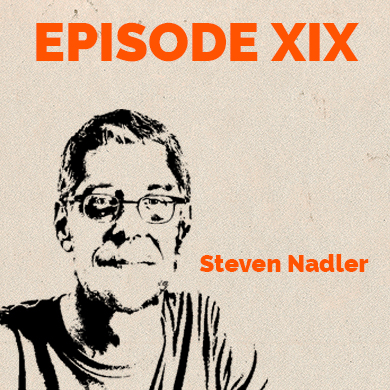
Episode 18 - Colonial Dissent: Blasphemy, Libel and Tolerance in 17th Century America
Americans are the most supportive of free speech around the world. 95 % of Americans think it’s very important to be able to criticize the government without censorship and 77% support the right to offend religious feelings. But in 17th Century colonial America criticizing the government, officials or the laws was punishable as seditious libel and could result in the cropping of ears, whippings, boring of the tongue and jail time. Religious speech was also tightly controlled. Blasphemy was punishable by death in several colonies and religious dissenters such as Quakers were viciously persecuted in Puritan New England. Despite the harsh climate of the 17th century, the boundaries of political speech and religious tolerance were significantly expanded. In this episode we’ll look into
- How the crime of seditious libel was exported to colonial America
- Why peddlers of “fake news” were seen as enemies of the state
- Why a Harvard student was whipped for blasphemy
- Why four Quakers were hanged in Boston and many more whipped, branded and jailed
- How colonies like Pennsylvania, Carolina and Maryland combined religious tolerance with laws against religious offense,
- How Roger Williams´ ”Rogue Island” and West New Jersey adopted policies of radical religious toleration´
- The dangers of mixing alcohol and politics in Maryland
- How William Penn promoted religious tolerance and political intolerance
- How the colonies operated a strict licensing regime to suppress printing
- How John Wise protested taxation without representation and became “America’s First Great Democrat".
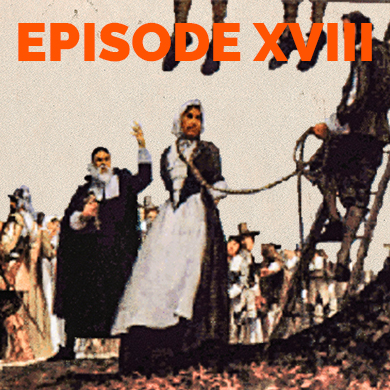
Episode 17 - Global Inquisition
In the 16th Century Spain and Portugal globalized the inquisition by spreading the fight for religious orthodoxy and against heresy, blasphemy and apostasy to the Americas, Africa and Asia allowing inquisitors to pry into the souls of men on five continents. In Episode 17 we try to answer questions such as:
- How many people were affected by the inquisition?
- What were the consequences for native Americans?
- What were the similarities and differences between inquisition in Europe and the different colonies?
- What where the links between inquisition, racism and anti-semitism?
- How did the inquisition stop the spread of books and information?
- Why and when did the inquisition end?
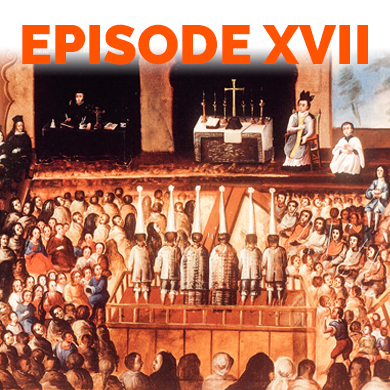
Episode 16 - Expert Opinion - Michael Shermer
In this episode, we join up with historian of science Dr. Michael Shermer to investigate the cross-fertilization between science and free speech.
Michael Shermer is a prolific writer on science, philosophy and morality and has appeared in numerous documentaries, talk shows, and TED talks.
Among the topics discussed are:
- When did scientific freedom make its decisive breakthrough?
- What comes first: Science or free inquiry?
- How did both Islam and Christianity affect science?
- What is the relationship between science and free speech as such?
- Can science be used to suppress free speech?
- How did Benjamin Franklin infuse the Declaration of Independence with Newtonian science?
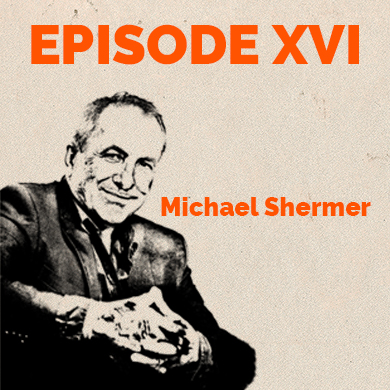
Episode 15 — Paper-bullets and the forgotten martyrs of radical free speech
Episode 15 returns to Europe and formative events in 17th Century England, where a mostly forgotten group of radicals demanded a written constitution guaranteeing free speech, liberty of conscience, and democracy. But who were the Levellers? What was the historical context of their radical demands and why were they ultimately crushed by former allies?
Listen and find the answers to such questions as:
- Who was the first English author to demand full religious toleration for both heretics and non-Christians?
- Why did Charles I and Archbishop Laud cut off the ears of dissenting Puritans?
- What happens when you try to impose alien religious ceremonies on proud and devout Scots?
- Why was censorship abolished in 1641 and what were the consequences?
- What happened at the Putney Debates?
- How radical were the Levellers’ demands for free speech and liberty of conscience?
- Did John Milton really become a censor himself?
- Why did traditionalists refer to pamphlets and books as “paper-bullets?”
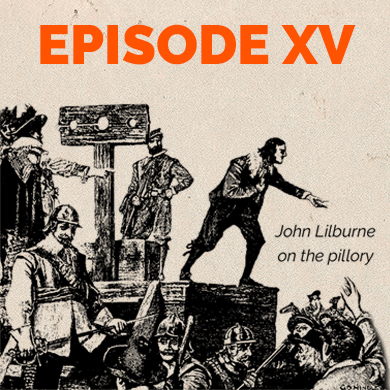
Episode 14 - ‘Universal Peace’ and religious tolerance in the Mughal empire
Episode 14 leaves the West and heads to 16th and 17th Century India and the Mughal empire. In particular, the rule of Akbar the Great.
A century before John Locke’s “A Letter Concerning Toleration,” Akbar developed a policy of “Universal Peace” repudiating religious compulsion and embracing ecumenical debate. We’ll also discover why the history of the Mughal empire still tests the limits of free speech and tolerance in modern India. Among the questions tackled are:
- Why, how, and to what extent did Akbar abandon orthodox Islam for religious tolerance?
- How did religious tolerance in the Mughal empire compare to contemporary Europe?
- How did English travelers get away with openly blaspheming Muhammad, the Quran, and Allah?
- Was the emperor Aurangzeb really the uniquely intolerant villain that history has portrayed him as?
- Why do India’s current laws against religious insults hamper modern historians’ efforts at documenting events during the Mughal empire?
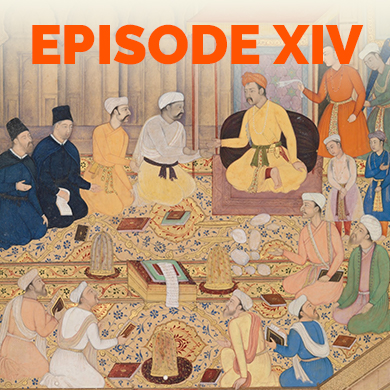
Episode 13 – Expert Opinion – Jonathan Haidt
In this episode, we do a bit of time travel and leave the 17th century for a discussion of free speech on American college and university campuses today.
Our guest is New York University professor Jonathan Haidt, who is a co-author with FIRE’s Greg Lukianoff of “The Coddling of the American Mind: How Good Intentions and Bad Ideas Are Setting Up a Generation for Failure,” which is already among Amazon’s top 20 bestselling books.
But in looking at the present challenges to free speech on campus, we do also try to draw parallels with older controversies in order to determine whether the psychological mechanisms at play are similar.
Among the topics discussed are:
- Is there really a “free speech crisis” among American students?
- The three “Great Untruths” challenging the idea of free speech
- The mental health crisis affecting students’ ability to handle adversity and disagreement
- The role of social media
- Why students’ efforts to shut down speakers at American universities is related to the millennia-old idea of blasphemy
- What drives tribalism old and new?
- Whether we should think of words as a form of violence
- How do we overcome the temptation to reenact the inquisition?
Jonathan Haidt is a social psychologist and the author of the New York Times Bestseller “The Righteous Mind.” Among a dizzying range of activities, Haidt is also the co-founder of Heterodox Academy, a large and growing group of professors and students who disagree on many things but are united in their mission to increase viewpoint diversity at American universities.
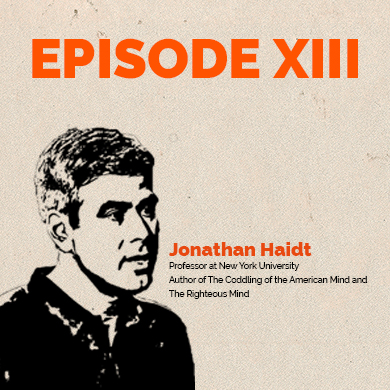
Episode 12 – Expert Opinion – Teresa Bejan
We enter the early modern age with an expert opinion featuring Teresa Bejan, associate professor at Oriel College, Oxford University and author of “Mere Civility: Disagreement and the Limits of Toleration.” In this episode, Jacob and Teresa will discuss political thought on tolerance and the limits of religious speech in early modern England and colonial America. The episode investigates the writings of intellectual rock stars John Milton, Thomas Hobbes, and John Locke and the less famous but hugely relevant Roger Williams.
Among the topics discussed are:
- Milton’s “Areopagitica”
- Early colonial religious “hate speech” laws
- Why Hobbes found “the mere fact of disagreement offensive”
- The origin, development, and limits of Lockean tolerance
- Williams’s combination of fundamentalist evangelical intolerance and free speech fundamentalism
- Why political theory and practice of the 17th century is relevant to modern day controversies on free speech
Bejan is Associate Professor of Political Theory in the Department of Politics and International Relations at the University of Oxford and a Fellow of Oriel College. She is the author of Mere Civility: Disagreement and the Limits of Toleration.
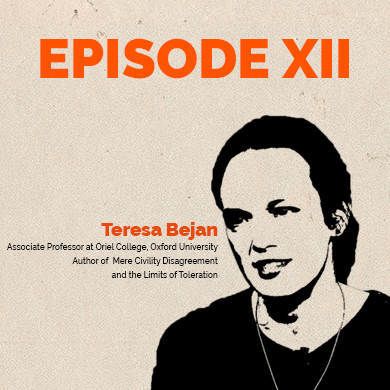
Episode 11 - The Great Disruption: Part II
In episode 11 we continue to survey the wreckage after hurricane Luther was unleashed on Europe with the Reformation. When the Reformation mutated and spread across the continent a burning question arose: Can people of different faiths live together in the same state? Should social peace be based on tolerance or intolerance? We look into questions such as
- How did other Protestant reformers like Calvin and Zwingli react to religious dissent?
- In what manner did English and continental censorship laws differ?
- How did the Catholic Church react to the Reformation?
- Which states were the first state to formalize religious tolerance?
- How did the scientific and philosophical ideas of Galileo and Giordano Bruno conflict with the religious monopoly on truth and what where the repercussions?
And much, much more.
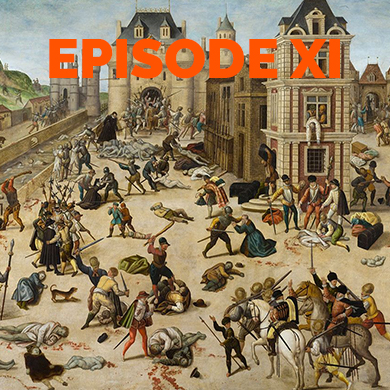
Episode 10 - The Great Disruption: Part I - The Printing Press and the Viral Reformation
The disruptive effects of the internet and social media on the spread of information are unprecedented. Or are they?
In episode 10 Clear and Present Danger, we cover the invention, spread, and effects of the Gutenberg printing press:
- What significance did this new technology have for the dissemination of knowledge and ideas?
- Why was the printing press instrumental in helping a German monk and scholar break the religious unity of Europe?
- What happened when new religious ideas raged through Europe like wildfire?
- And did Martin Luther’s Reformation lead to religious tolerance and freedom, or persecution and censorship?
And much, much more.
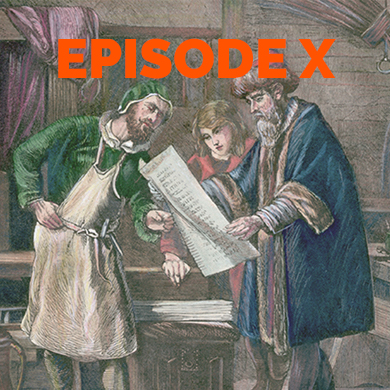
EPISODE 9 – Expert Opinion - Christine Caldwell Ames
Our last stop in the Middle Ages is an interview with professor Christine Caldwell Ames, who is an expert on medieval heresy and inquisition in Judaism, Christianity, and Islam. The discussion highlights the similarities and differences between Christianity, Catholic and Orthodox, Judaism, and Islam when it comes to defining and policing orthodoxy.
Among the topics discussed are:
- Was the Medieval Inquisition motivated by worldly power or religious zeal?
- What effect did the Medieval Inquisition have on ordinary people and local communities?
- Why has the Spanish Inquisition become so infamous?
- Was Islamic Spain a haven of religious tolerance compared to the Latin West?
- Are inquisitions a thing of the past or still relevant in the 21st century?
And much, much more.
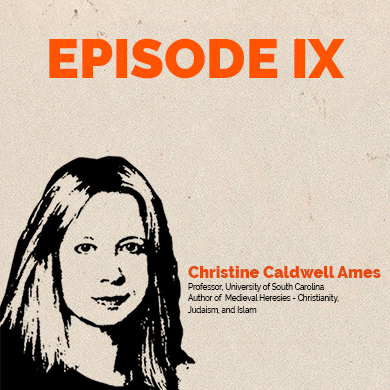
EPISODE 8 – The hounds of God - medieval heretics and inquisitors
From the High Middle Ages, Europe developed into a “persecuting society,” obsessed with stamping out the “cancer” of heresy. But questions about how this was accomplished — and the consequences of these developments — abound:
- Why did popes and secular rulers shift from persuasion to persecution of heretics?
- Why was human choice in matters of religious belief considered a mortal threat to Christendom itself?
- Why did bookish inquisitors armed with legal procedure, interrogation manuals, data and archives succeed where bloody crusades and mass slaughter failed?
- How did the “machinery of persecution” developed in the Late Middle Ages affect other minority groups such as Jews?
- Are inquisitions a thing of a past and dark hyper-religious age, or a timeless instrument with appeal to the “righteous mind” whether secular or religious?
- What are the similarities between medieval laws against heresy and modern laws against hate speech?
We try to answer these questions — and more — in the latest episode of our Clear and Present Danger podcast.
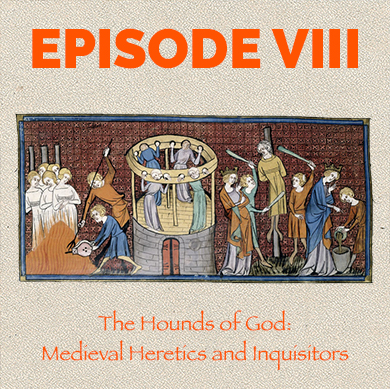
EPISODE 7 – Expert Opinion – Peter Adamson
In our second expert opinion episode, Jacob Mchangama talks with Peter Adamson, who is a professor of philosophy at Ludwig Maximilian University of Munich and host of the podcast “History of Philosophy Without Any Gaps.”
We’ll discuss medieval freethinking and freethinkers from both the Islamic world and the Latin West. Where was the soil most fertile for medieval freethinking? What was the impact of Muslim philosophers like Avicenna and Averroes on European thought? And finally, who makes Peter’s list of the top three boldest European medieval freethinkers?
Professor Peter Adamson has released over 300 podcast episodes on the history of philosophy, written several books, and published numerous papers on medieval and ancient philosophy. He holds a joint appointment with the Ludwig Maximilian University of Munich and King’s College London.
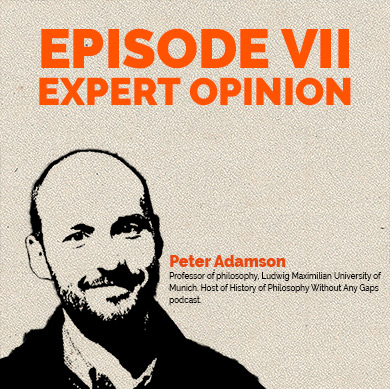
EPISODE 6 – The not-so-Dark Ages, medieval intellectuals, and freethinkers
In episode 6, we get medieval!
Find out why the Middle Ages were as much a period of reason and inquiry as inquisition and superstition.
Why was the famous medieval intellectual Pierre Abelard castrated, forced to burn his works, and condemned to silence by the church? How did the combination of Aristotelian philosophy and the development of universities institutionalize reason and science? What are the parallels between clashes over academic freedom in the 13th and 21st centuries?
All this and much more in Clear and Present Danger - episode 6!
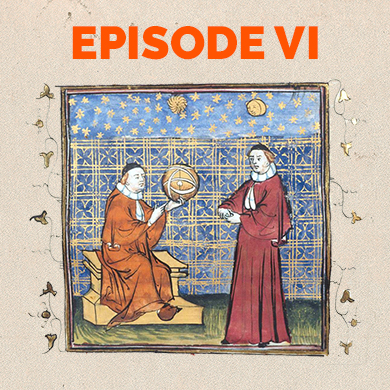
EPISODE 5 – The Caliphate
Why did the medieval Abbasid Caliphs have almost all ancient Greek works of philosophy and science translated into Arabic? How did the long list of medieval Muslim polymaths reconcile abstract reasoning with Islamic doctrine?
Who were the radical freethinkers that rejected revealed religion in favor of reason in a society where apostasy and heresy were punishable by death?
And why are developments in the 11th century crucial to understanding modern controversies over blasphemy and apostasy, such as the Salman Rushdie affair and the attack on Charlie Hebdo?
Find out in episode 5 of Clear and Present Danger: A History of Free Speech. The Caliphate
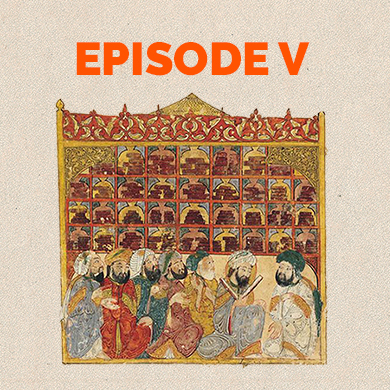
EPISODE 4 – Expert Opinion – Paul Cartledge
In our first expert opinion segment, Jacob Mchangama talks to Emeritus Professor of Greek Culture at Cambridge University Paul Cartledge. With his intimate knowledge of ancient Greece, we dive deeper into the concepts of free speech and democracy in Athens that were discussed in episode one.
What are the differences between free speech in the Athenian democracy and free speech in a modern liberal democracy? What limits did religion set for Athenian free speech? Was Plato a totalitarian? And was the trial of Socrates mostly religious or political?
The discussion also explores the differences between Athens and republican Rome, why free speech was alien to Sparta, and the rather condescending attitudes of the American Founding Fathers toward Athenian democracy (shame on you for defaming Pericles, Alexander Hamilton!).
Cartledge has written extensively on ancient Athens. His authorship includes among many titles, the critically acclaimed “Democracy: A Life” and “Ancient Greek Political Thought In Practice.”
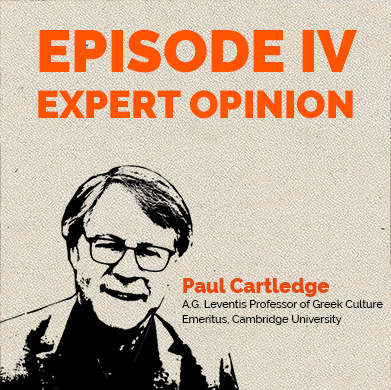
EPISODE 3 - The Age of Persecution
Why did the polytheist Ancient Romans persecute the followers of the new Jewish sect of “Christians” in the first three centuries AD”? How high was the price that Christians had to pay for casting away their ancient religious traditions for the belief in salvation through Jesus Christ? Did Roman Emperor Constantine end religious intolerance with the Edict of Milan? And why did the Christians persecute the pagans – and each other – once Christianity became the state religion of the Roman Empire? Why were temples and libraries destroyed and the female mathematician Hypatia killed by violent mobs? And did Emperor Justinian really end antiquity when he closed the Academy in Athens? Find out when we discover how religious persecution and violence impacted lives, learning, and liberty of conscience in the period from the trial of Jesus to the age of Justinian. The Age of Persecution. That’s episode 3 of Clear and Present Danger: A History of Free Speech.
EPISODE 2 - Liberty or License
Rome was the most powerful empire in antiquity. But were the Romans free to speak truth to power? Did history’s first successful Women’s March takes place in Rome? And who came out on top when the words of Cicero clashed with the ambition of Caesar and armies of Octavian? Why did historians and astrologers become endangered species when the Republic became an empire? Find out in episode 2 of “Clear and Present Danger: A History of Free Speech”.
EPISODE 1 - Who wishes to speak?
The democracy of Ancient Athens was the birthplace of equal and uninhibited speech. Or Isegoria and parrhesia to the Athenians. Jacob Mchangama guides you through how oratory was central to the idea and practice of Athenian democracy. What Athenian style free speech entailed for ordinary citizens, comedians, philosophers, and orators. How oligarchic coup d’etats twice drowned Athenian free speech in blood and repression. The extreme methods used by Demosthenes to become the greatest orator of antiquity. And of course: the trial of Socrates: Was he a martyr for free speech or an impious and seditious enemy of democracy?
So the following episode is an attempt to bring to life a pivotal but often forgotten period as we embark on the first stop of what I hope will be a long journey together through the history of free speech.
EPISODE 0 - Why free speech?
Only 13% of the world’s 7,4 billion people enjoy free speech. 45% live in countries where censorship is the norm. Still, more than half the world’s population across cultures and continents think free speech is very important. But why is that? Where does the principle of free speech come from? How has it been developed over time? Why have kings, emperors, and governments killed and imprisoned people to shut them up? And why have countless people risked death and imprisonment to express their beliefs? And what can people in the digital age learn from past conflicts over where to draw the line?
In this Prologue, Jacob Mchangama explains his motivation and core beliefs on why and how he will take on this endeavor to explore the history of free speech.
Why Free Speech?
From 1989 and until the early noughties free speech went viral across the globe as new democracies tore down the walls of censorship. But for more than a decade the global respect for free speech has been in decline. In 2003 41% of the world’s countries had a free press. In 2017 that figure had dropped to 31%. Or put differently: Only 13% of the world’s 7,4 billion people enjoy free speech. 45% live in countries where censorship is the norm. Still, more than half the world’s population across cultures and continents think free speech is very important. But why is that? Where does the principle of free speech come from? How has it been developed over time? Why have kings, emperors, and governments killed and imprisoned people to shut them up? And why have countless people risked death and imprisonment to express their beliefs? And what can people in the digital age learn from past conflicts over where to draw the line? Jacob Mchangama guides you through the history of free speech from the trial of Socrates to the Great Firewall.?
Distribution of countries with press freedom in 2016 – Freedom House
WANT TO KNOW MORE ABOUT THE PEOPLE BEHIND THE PODCAST? CURIOUS WHAT ELSE WE DO?
Jacob Mchangama
Jacob Mchangama is the founder and executive director of Justitia a think tank focusing on human rights and a Visiting Scholar at Columbia’s Global Freedom of Expression Center. He has commented extensively on free speech and human rights in outlets including the Washington Post, the Wall Street Journal, The Economist, Foreign Affairs and Foreign Policy. Jacob has published in academic and peer-reviewed journals, including Human Rights Quarterly, Policy Review and Amnesty International’s Strategic Studies. He is the author of the critically acclaimed and award-winning book, MEN Ytringsfrihedens Historie i Danmark (BUT: The History of Freedom of Expression in Denmark). He is the author and presenter of the short documentary “Collision: Free speech and religion” (2013). Mr. Mchangama is a 2016 Marshall Memorial Fellow. He is the recipient of numerous awards for his work on free speech and human rights.
